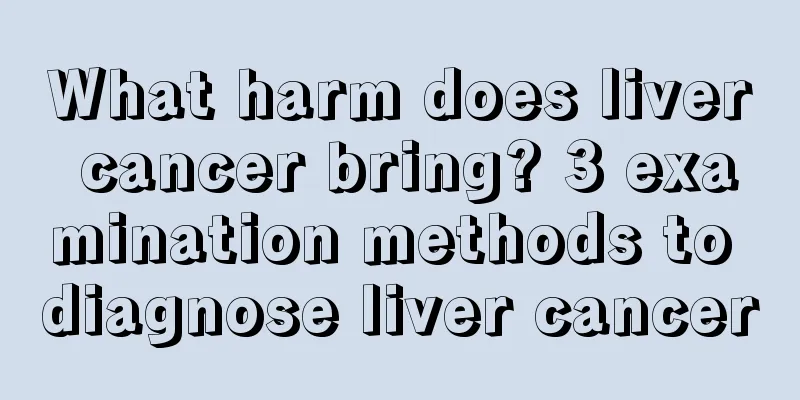Can thyroid cancer be cured?

|
Due to the increasing incidence of thyroid cancer in recent years, more and more people are afraid of this disease. Also, because people don’t know much about thyroid cancer, many people think that the treatment of this disease is a very troublesome and painful process. Some people even think that they won’t live long! In fact, as long as the method is right, thyroid cancer can still be cured! So today we will find out whether thyroid cancer can be cured? Thyroid cancer is the cancer with the best surgical prognosis. In layman's terms, it is the cancer with the fastest and best recovery after surgery, and this cancer basically does not affect the quality of life. Tumors include benign tumors and malignant tumors. Malignant tumors are what we usually call cancer. Malignant tumors have the characteristics of excessive proliferation. Tumor cells can infiltrate locally and metastasize to other organs, affecting and destroying the normal functions of other organs until they fail and end life. Benign tumors usually do not have. Although thyroid cancer also has the above-mentioned characteristics of malignant tumors, due to its own tissue structure characteristics, thyroid cancer rarely metastasizes to distant sites. It is generally confined to the neck. This is the best result for malignant tumors. Although most thyroid cancers have a good prognosis, undifferentiated cancers have a very poor prognosis, with an average survival time of only 3 to 6 months. Papillary carcinoma, which is the most common in clinical practice, has the best prognosis and can basically achieve clinical cure. Follicular adenocarcinoma tumors grow rapidly, are moderately malignant, and are easily metastatic through the bloodstream. Mainly surgical treatment Except for anaplastic carcinoma, thyroid cancer is not sensitive to radiotherapy and chemotherapy and is mainly treated with surgery. Lobectomy and isthmus resection plus central lymph node dissection can be used. Thyroxine should be taken after surgery for papillary and follicular adenocarcinomas. Papillary and follicular adenocarcinomas with distant metastasis can be treated with radionuclide therapy after total thyroidectomy. 1. The diameter of cancer is >4cm. 2. Failure to confirm the diagnosis through non-invasive examination. 3. Obvious atypical pathological changes are seen during biopsy. 4. The biopsy report suggests papillary carcinoma, and there is a family history of thyroid cancer or history of radiation exposure. 5. If bilateral nodules cannot be diagnosed or the patient wishes to avoid the risk of subsequent reoperation on the contralateral lobe, total or near-total thyroidectomy should also be performed. Thyroid cancer has a low malignancy, a slow course of disease progression, and a good prognosis. After surgical treatment, almost 90% of patients can survive for a long time. Among malignant tumors, thyroid cancer has a relatively good prognosis. Many thyroid cancers have metastasized, but patients can still survive for more than ten years. The survival time of thyroid cancer is related to many factors, such as age, gender, pathological type, extent of lesions, metastasis and surgical method, among which the pathological type is the most important. Well-differentiated papillary carcinoma and follicular carcinoma are low-grade malignant tumors with a good prognosis. If the treatment is timely and reasonable, most patients can be cured. However, undifferentiated carcinoma is different. It is a highly malignant tumor that develops rapidly and has a poor prognosis. Except for a few patients who are discovered early, treated in time, and undergo thorough surgery or achieve a 10-year survival rate, most patients die within 1 to 2 years. The malignancy of medullary carcinoma is between the above two types of cancer. If the diagnosis and treatment is timely and the surgery is thorough, the 10-year survival rate can reach 82%. Otherwise, the prognosis is not good. Clinically proven, some endocrine-related tumors have a high cure rate in the early stages, such as thyroid cancer. Currently, thyroid cancer has become the malignant tumor with the highest cure rate. As long as the treatment is active, there is hope for cure. Surgery can only remove the surface tumor, but cannot remove the tens of millions of capillaries underneath the tumor (the foundation of the tumor), so postoperative consolidation treatment is critical. It is recommended that patients undergo CLS biological immunotherapy for better consolidation treatment effects, which will not cause any harm or toxic side effects to the body, and there is still hope for cure. Because surgery only removes local tumors, cancer cells also exist in the blood and lymph. Therefore, surgery cannot completely cure the disease. There is a possibility of recurrence or metastasis after surgery. It is recommended to continue anti-tumor treatment after surgery. These are all the knowledge that we must understand during the treatment process. Most people do not know how to treat thyroid cancer, which creates psychological pressure for some patients. |
<<: Eating these foods after thyroid cancer surgery will help you recover better
>>: How long can you live after thyroid cancer surgery? The answer is really incredible
Recommend
The harm of bleaching hair
Originally, there were only a few colors for peop...
What kind of shoes are better to wear when traveling?
After work, going out to visit scenic tourist spo...
The effects of red dates, white vinegar and rock sugar
Red dates are the most effective product for repl...
What is anterior wall myocardial infarction
Myocardial infarction is a relatively serious dis...
Can flaxseed oil be used for cooking?
As we all know, cooking oil is generally used for...
The benefits of drinking whole milk powder
I think everyone should be familiar with milk, ri...
Diet for urethritis
In addition to paying attention to the correct tr...
What should I do if I have bad breath after taking diet pills?
Taking diet pills causes bad breath. You need to ...
Why does eating leeks cause stomachache
I believe everyone must be very familiar with lee...
What are the hazards of ovarian tumors
There are many effective preventive methods to av...
How long can shrimp be kept fresh in the refrigerator
Shrimp is a seafood that many people love very mu...
The harm of pinworms
Pinworms are a type of bacterial proliferation ca...
Squamous metaplasia and treatment methods
Many people around us suffer from a disease calle...
What treatments are used after gastric cancer relapses
One quarter of the causes of death in my country ...
How long does it take to recover after surgery for bile duct cancer
I believe everyone is familiar with bile duct can...









